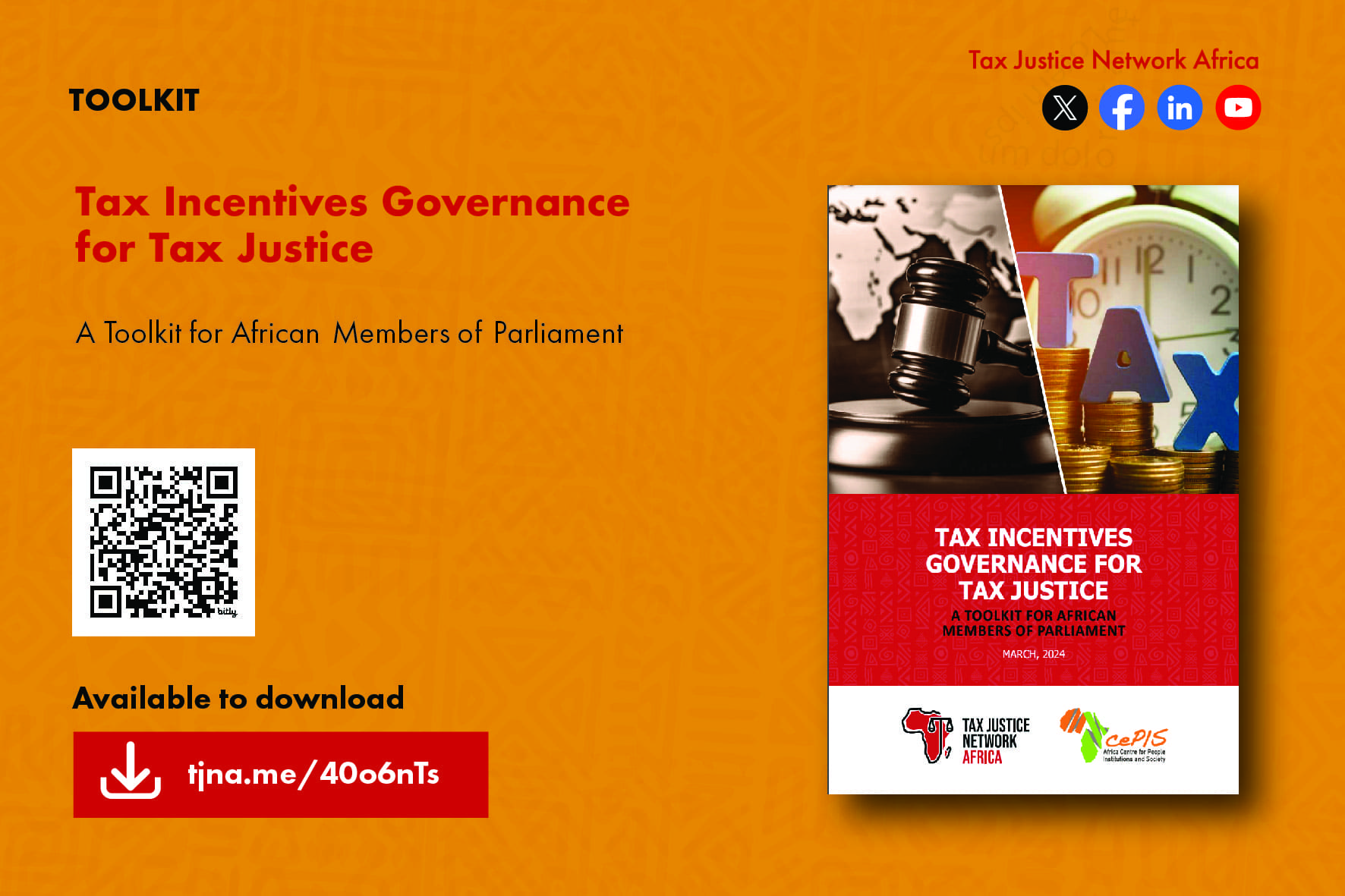Date

Revenue leakages and the erosion of the tax base have been identified as negative consequences of harmful tax incentives across the continent. As a result, Members of Parliament are encouraged to anticipate these challenges and develop strategies to address them, ensuring more effective governance of tax incentives and expenditures.
This is according to a toolkit by Tax Justice Network Africa (TJNA) and Africa Centre for People, Institutions and Society, (ACEPIS) that provides more technical support to MPs on tax incentives governance. It breaks down the essence of tax incentives, provides a rationale for tax incentive governance by providing best practices and key legislative interventions that MPs can make in line with improving tax incentives/expenditure governance.
The toolkit titled ‘Tax Incentives Governance for Tax Justice, A toolkit for African MPs’, examines tax incentives which aim to encourage economic activity, particularly investment. Examples of such incentives include; tax holidays, investment allowance, tax deferrals, special economic zones among others.
According to this toolkit, both developed and developing countries offer various tax incentives to attract investors and stimulate economic growth. Despite the widespread use of tax incentives for investment attraction, governance of these incentives remains weak in many economies. Further, the toolkit states that tax incentives governance encompasses the design, administration, monitoring, and evaluation of such incentives, responsibilities typically managed by Ministries of Finance, other sector ministries, revenue authorities, and agencies overseeing preferential tax regimes.
Unfortunately, parliamentary oversight is often minimal or non-existent in these processes. In many African countries, tax incentives are granted through fragmented laws that grant unchecked executive powers, which can be prone to misuse. Additionally, some incentives are provided through private agreements that bypass public or parliamentary scrutiny, fostering a lack of transparency and accountability in their governance.
Among the challenges highlighted in the toolkit is that once tax incentives have been issued, they pose significant challenges to laws and policies aiming to revoke or remove them in instances where they are deemed harmful. This is largely due to aggressive lobbying by powerful corporations with significant financial and political influence.
In Mauritius, for instance, lobbyists backed by certain public officials consistently influenced laws and policies related to tax incentives in Special Economic Zones and Export Processing Zones, particularly when these policies did not offer additional incentives. As a result, the efforts of influential corporations and elites ensure that tax incentives remain intact, benefiting only a select few while sidelining the interests of less politically connected groups.
Further, the toolkit notes that roughly 50 per cent of countries are concentrated within the lowest Global Tax Expenditures Transparency Index (GTETI) scores on tax expenditure reporting within parliaments’ policy making. This perpetuates lack of transparency in scrutiny of tax expenditure policies for parliamentarians Tax expenditure reports and other documents that provide adequate information are essential to parliamentarians to exercise oversight and hold agencies and ministries to account.
To enhance transparency and accountability in tax incentives granted through sector-based agreements or legislation, the toolkit recommends that parliamentarians, can push for the full or partial disclosure of contracts, including fiscal terms like tax incentives. They can also advocate for the development of access-to-information legislation and make parliamentary approval a requirement before such contracts or agreements are enforced, either through ratification or the gazetting of a statutory instrument.
In its recommendations, the toolkit calls for Members of parliament to utilise their legislative mandate to formulate and pass laws and policies that minimize lobbying by powerful corporations. As a result, MPs can effectively support the removal of harmful and less beneficial tax incentives through suitable laws and policies. Furthermore, parliamentary decisions regarding tax incentives should involve high-standard public consultations. The consultations will be useful in promoting equal influence on tax incentive administration and align with intended economic and social goals of countries
Lastly, the toolkit calls on MPs to address coordination challenges, by ensuring that they work towards developing rules and designate clear responsibilities to both arms of the government during the budget process and governance of tax expenditures, thus creating a common ground for legislature and the executive to address oversight and accountability issues, and strengthen coordination and information sharing between the executive and legislature to promote smooth and timely formulation and implementation of tax policies and laws.
To access the full report, please visit https://tjna.me/40o6nTs
For more information on our work with parliamentarians please contact Francis Kairu at fkairu[@]taxjusticeafrica.net.